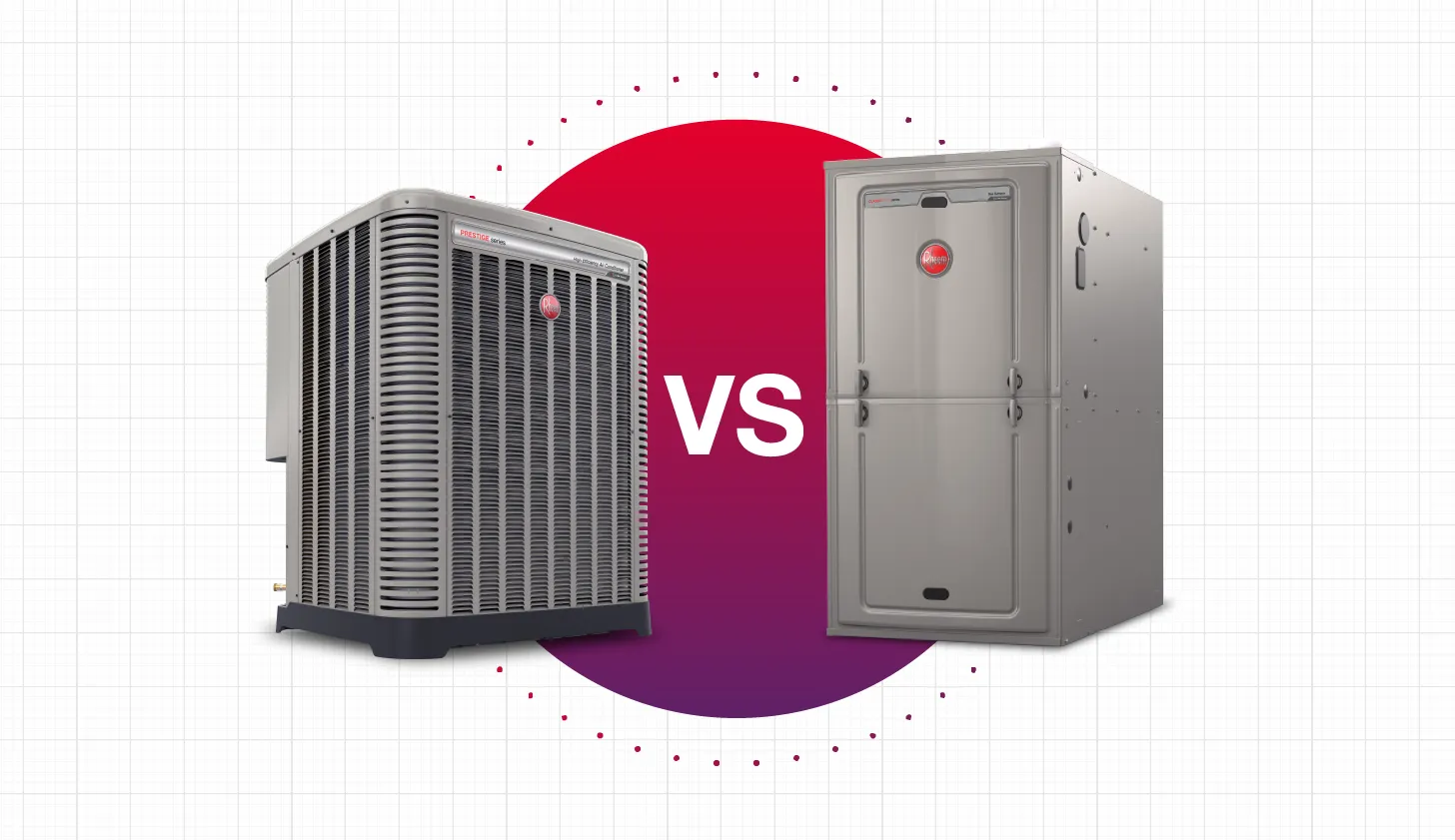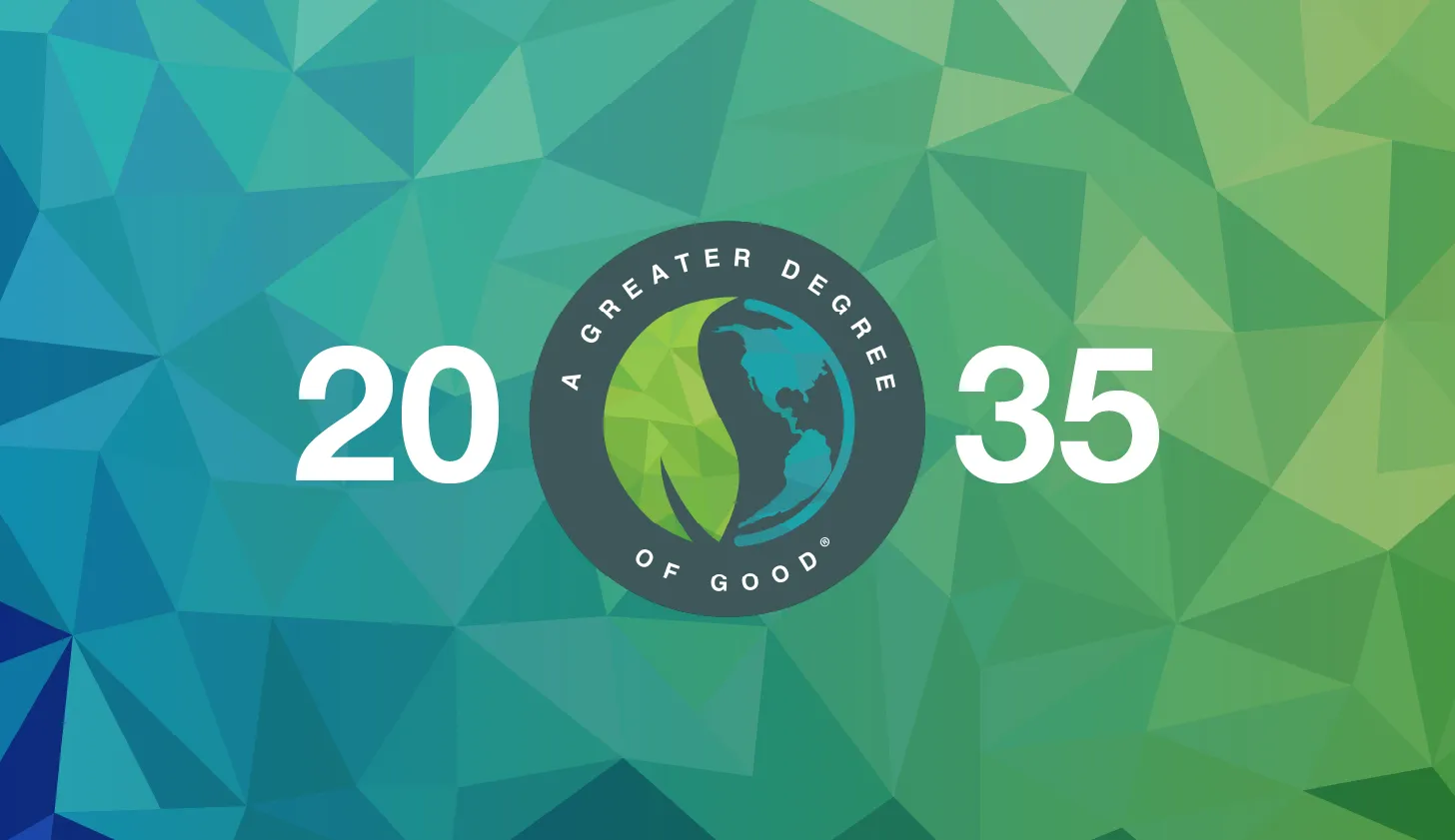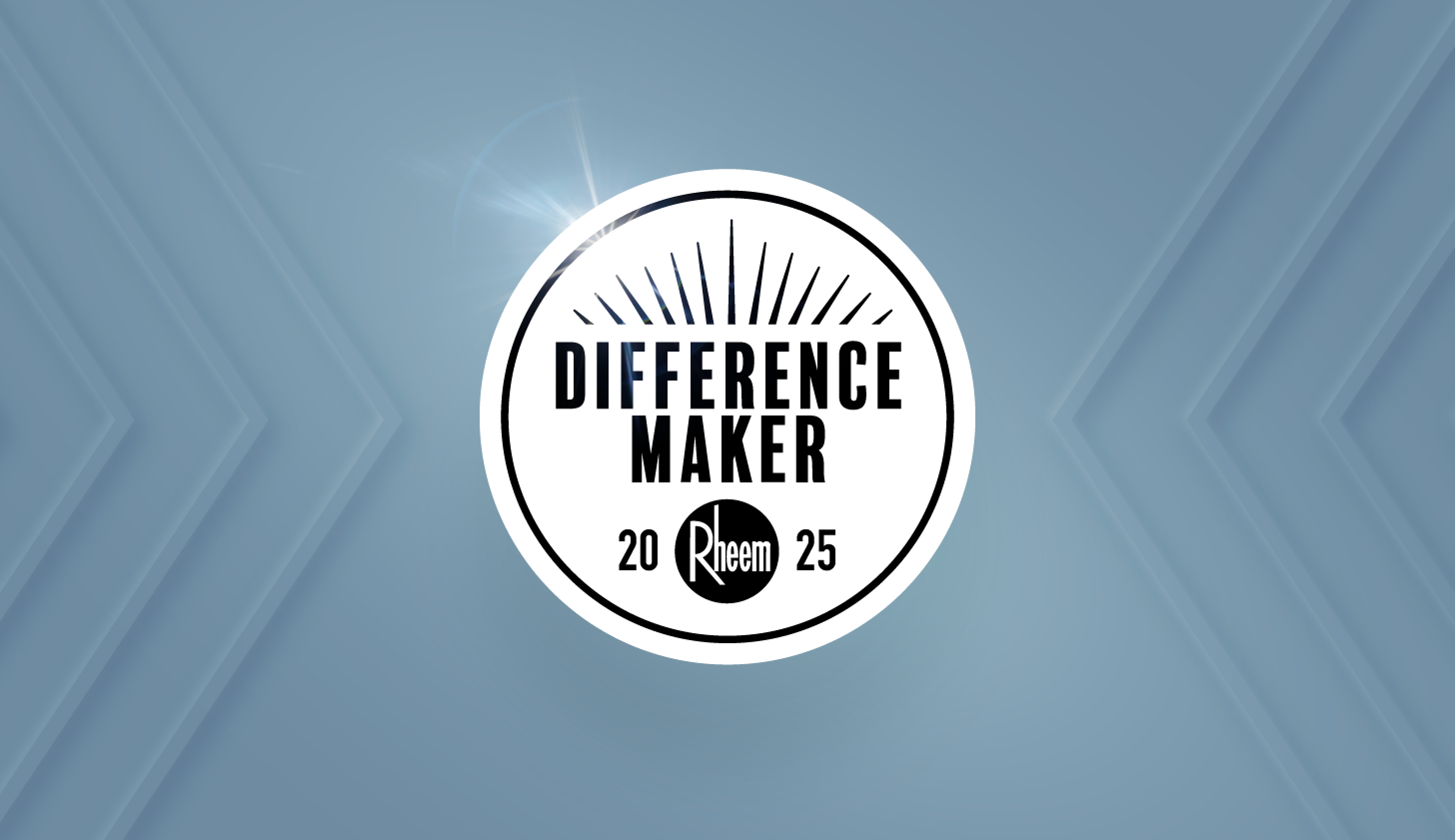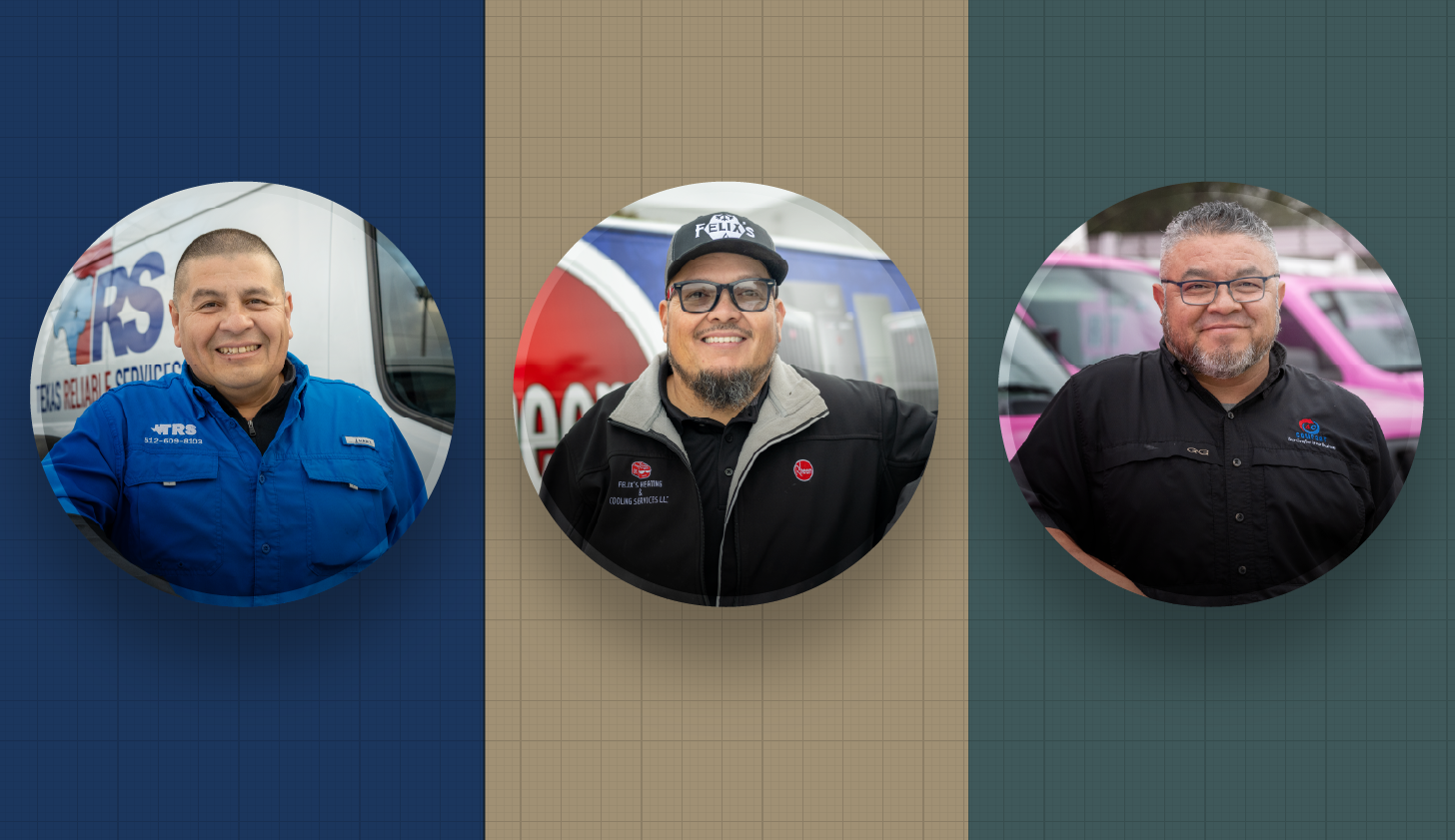Winter Prep Tips for Water Heating Systems
October 20, 2025
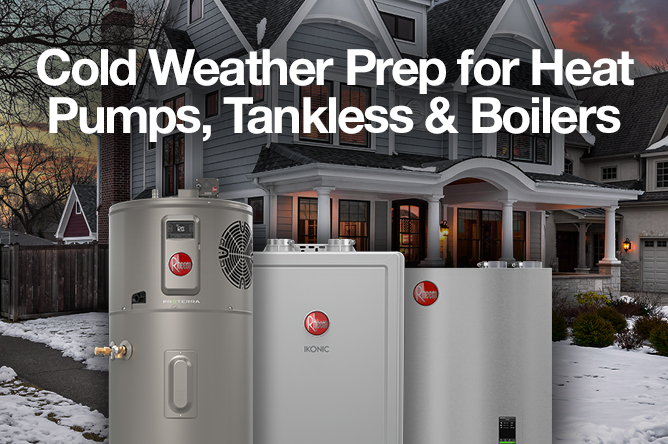

Winter-Proofing Your Home’s Water Heating System: A Complete Guide for Heat Pumps, Tankless Units and Boilers
As winter approaches, your home’s water heating systems face new challenges. Whether you rely on a heat pump water heater, a tankless unit or a high-efficiency boiler, colder temperatures can impact performance, efficiency and even safety. Preparing your system now helps ensure reliable hot water and heating all season long. In this guide, we’ll walk through winter prep steps for each type of system so you can stay warm and worry-free.
Heat Pump Water Heaters
Just like real estate, when it comes to heat pump water heaters (HPWHs), it’s all about location. Unlike traditional water heaters, HPWHs rely on ambient air to heat water. The temperature of that air, combined with incoming ground water temperature, can vary significantly in winter depending on where you live and where the unit is installed. Understanding how the following factors effect your water heater helps you prepare.
Geography and Climate- Your location plays a big role in how your HPWH performs during winter. In colder climates, ambient air temperatures can drop below the optimal range for heat pump operation (37-145°F). Also ground water temperatures are colder in northern states which means your HPWH has to work harder to heat incoming water to set point. Understanding your local climate and ground water temperature helps you anticipate when to change your operating mode.
Location of the Water Heater in Your Home- Where your HPWH is installed affects may affect Winter performance. Units located in unconditioned spaces like garages or unfinished basements may be exposed to colder air which reduces the unit’s efficiency and performance. If your unit is in a colder area of the home, consider:
- Insulating the space
- Ducting warm air from a heated space and ducting cooler exhaust air outside to maintain a suitable operating ambient temperature
- Switching to High Demand mode during colder months
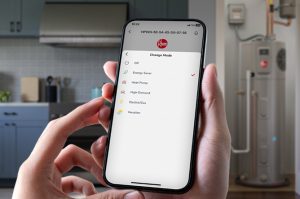
Operating Modes- Rheem Hybrid Electric HPWHs offer multiple operating modes. The two most commonly used are:
- Energy Saver mode: The default mode optimizes hot water production and energy savings while prioritizing heat pump operation. In colder climates, this mode may struggle to keep up during winter months.
- High Demand mode: Uses the heat pump simultaneously with either lower or upper electric elements to heat water quickly. While it reduces energy savings due to increased electric element operation, it helps ensure an adequate hot water supply. Switching to High Demand mode during high usage periods or winter months may be necessary.
Visit rheem.com/heatpumpwaterheaters to learn more.
Tankless Water Heaters
Yes, tankless water heaters need to be winterized to protect against potential cold weather damage. Although tankless water heaters don’t store water, the water running through the unit’s pipes can freeze.To prepare a tankless gas water heater for winter, it’s important to consider installation location as well as freeze and power outage risks. * Winter prep includes:
Maintaining Power and Gas- To maintain internal freeze protection:
- Keep the gas and water connected and electric power on.
- Prevent damage by draining the unit completely if a power outage is expected during freezing conditions
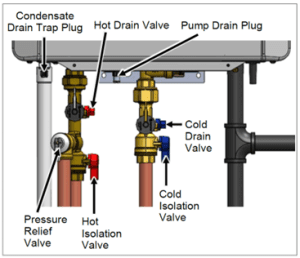

Protecting Pipes- If your unit is located outside, external piping and valves require additional freeze protection:
- Wrap insulation around both hot and cold water pipes and valves.
- Install heat tape or a heating cable on piping and plug into nearby 120V outlet.
Did you know Rheem’s tankless gas units are equipped with built-in freeze protection? Multiple ceramic heaters protect the unit when temperatures start dropping (down to -30°F). They are located internally on the inlet water pipe and recirculation return pipe (select models).
Keep the Water Flowing- To maintain water movement through your pipes and prevent freezing:
- Schedule your recirculation system on a timer if your unit has a recirculation pump
- Leave a hot water faucet slightly open to maintain water flow
Getting Professional Maintenance- Consider having a qualified technician inspect your tankless water heater annually. They can flush and clean the unit, check for wear and ensure everything is functioning properly.
* Always refer to your specific tankless water heater’s manual.
Visit rheem.com/tankless to lean more.
FT Series and ThermaForce Boilers
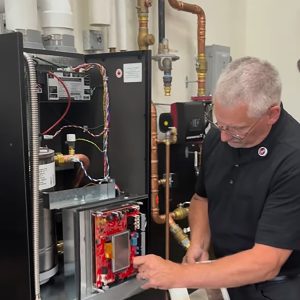

Before the chill of winter sets in, prepare your Rheem FT Series or ThermaForce boiler for optimal cold weather performance. Rheem’s super high-efficiency boiler systems are designed for reliability and comfort. However, a few seasonal checks can go a long way toensure smooth and efficient operation.
Homeowner Pre-Inspection Checklist- Before your technician arrives, you can take a few proactive steps:
- Clear the area around your boiler of any combustible materials.
- Visually inspect the heating system for signs of leaks or corrosion. If anything looks off, mention it to your technician.
- Check vent and combustion air terminations for obstructions, especially landscaping that may have grown during the summer.
- Examine the pressure relief valve and discharge piping for any signs of leaks or moisture.
- Inspect the condensate trap and outlet pipe: The trap must be full of water. If connected to a neutralizer, ensure the pH of discharged water is above 6.0. If not, the neutralizer may need to be recharged or replaced.
- Test smoke and carbon monoxide detectors to ensure they’re functioning properly.
Start with a Professional Inspection- A certified technician will:
- Confirm safe operation.
- Perform any maintenance recommended in the unit’s installation and operating instructions.
Water Quality Matters- Normally a boiler system’s water does not need to be replaced after initial setup. However, periodic water treatment or top offs may be necessary depending on system conditions and local water quality. Clean, balanced water:
- Protects internal components
- Maintains long-term efficiency
- Prevents corrosion and scaling
These simple but important steps will help your FT Series or ThermaForce boiler deliver reliable, safe and energy-efficient heating all season long. Visit rheem.com/boilers to learn more.
Preparation Goes a Long Way
Winter can be tough on your home’s water heating system but a little preparation goes a long way. Whether you’re using a heat pump, tankless unit or boiler, taking proactive steps now ensures comfort, safety, and energy efficiency when you need it most. Don’t wait for the first freeze—schedule maintenance, check your setup and winterize your system today. Your future self will thank you when the cold hits and your hot water keeps flowing.
